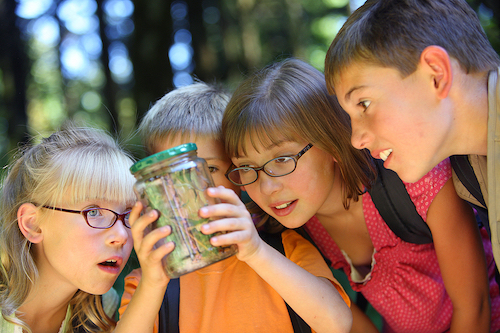February 28, 2024
by Elizabeth Pratt

Teenagers who grow up in large families have poorer mental health than their peers who grew up in a family with fewer siblings.
Researchers from Ohio State University found that in an analysis of children growing up in the US and China, a larger number of siblings had ramifications for the mental health of teenagers.
[More]
December 22, 2023
by Elizabeth Pratt

Parents are feeling the pressure this holiday season.
Data from the C.S. Mott Children’s Hospital National Poll on Children’s Health at University of Michigan Health found one in five parents think their children have unrealistic expectations of the holiday, and one in four parents admit they themselves set overly idealistic expectations for the holidays.
[More]
November 30, 2023
by Elizabeth Pratt

Women experience a large variation in perceptions of their own body during pregnancy.
Research published in BMC Pregnancy and Childbirth found that average levels of body image dissatisfaction was similar in pregnant and non-pregnant, but there were significant differences between individuals.
[More]
October 30, 2023
by Elizabeth Pratt

Children who are close to their parents early in life are more likely to be kind, helpful and prosocial when they grow up.
Researchers from the University of Cambridge found that children who had a strong bond with their parents early in their life were more likely to treat others kindly and act with empathy.
[More]
October 10, 2023
by Patricia Tomasi

A new study published in the Journal of Immunity looked whether there was a potential link between early life stress and the onset of mental disorders. “Individuals who suffer childhood abuse/neglect are much more likely to develop mental diseases, including depression and schizophrenia,” study author Wok-Suk Chung told us. “Additionally, stress has been shown to elicit a decrease in the number of excitatory synaptic connections in the brain and impair their functions. However, the underlying mechanism by which early life stress induces synaptic and behavioral symptoms later in life have been unclear.”
[More]
October 3, 2023
by Patricia Tomasi

A new study published in the Journal of General Internal Medicine looked at adverse childhood experiences (ACEs) and aging-associated functional impairment in a national sample of older community-dwelling adults. “In recent years, there has been growing interest and research in how stress and traumatic events that happen in childhood can impact people’s health in their early adult years, from increasing people’s risk of depression all the way to other diseases like diabetes,” study author Victoria M. Lee told us.
[More]
August 4, 2023
by Elizabeth Pratt

Children who read for pleasure experience better mental health during adolescence as well as superior performance in cognitive tests.
Research published in Psychological Medicine found that roughly 12 hours of reading per week was the perfect amount associated with an improvement in brain structure.
[More]
August 1, 2023
by Patricia Tomasi

A recent study looked at paternal and maternal psychiatric history and risk of preterm and early term birth. It was a nation-wide study using Swedish registers. “It has been known for some time that women who are clinically anxious or depressed are more likely to deliver a child prematurely,” study author Michael E. Silverman told us. “Indeed, considerable evidence now exists showing a relationship between various psychiatric illnesses and the likelihood of delivering a premature infant.”
[More]
July 18, 2023
by Patricia Tomasi

A new study published in the Journal of Family and Community Health looked at parental sexuality disclosure, discrimination, and depression among Black sexual minority men and Black transgender women. “There were two main goals of our study,” study author, Rodman E. Turpin told us. “First, we wanted to identify the relationship between discrimination and depression among Black sexual minority men and Black transgender women. Discrimination experienced by these populations can include social and structural racism, homophobia, transphobia, and more, so we used a comprehensive measure of discrimination for our study.”
[More]
April 30, 2023
by Elizabeth Pratt

Teenage girls are experiencing record high levels of persistent sadness.
A report from the CDC found that 57% of teenage girls in the US felt hopeless or persistently sad in 2021, that’s a 60% increase over the past ten years.
[More]